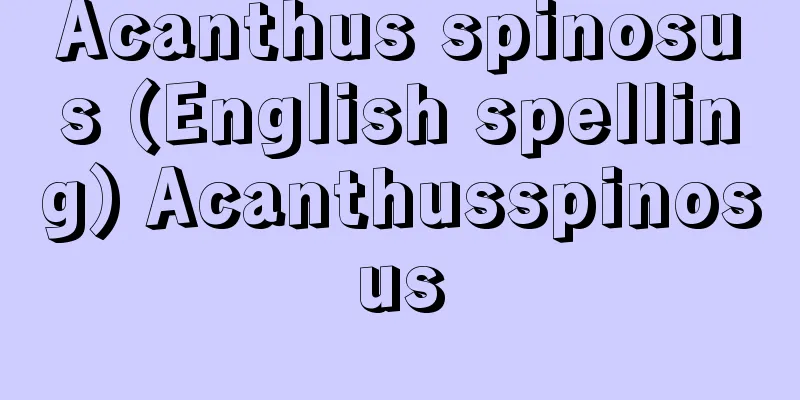Milton - John Milton

|
English poet and thinker. Not only is he one of the two great poets of English literature along with Shakespeare, but he was also caught up in the Puritan Revolution, supported it, and wrote many critical essays. Born on December 9th in London to a wealthy family with strong Puritan influence, he studied hard with the intention of becoming a priest. However, if becoming a priest meant becoming a clergyman of the Church of England, he had to abandon that intention, as he was against the religious policy of King Charles I at the time. He decided to become a religious poet, and after graduating from Cambridge University, he devoted himself to the study of classical literature as well as theology. During and after his studies, he wrote works such as L'Allegro (The Merry Man), Il Penserose (The Contemplative Man) (both 1631?), Comus (performed in 1634), and Lycidas (1637). Of these, only Comus is a masque, but in it his Puritan spirit is clearly expressed. [Masaho Hirai July 21, 2015] Pursuing the ideal of freedomIn 1638, he set out on a trip to the continent. During this trip, he met Grotius and Galilei. However, upon hearing of the social unrest in his homeland, he returned to the United States the following year in 1639. From then on, for about 20 years, his writing was mainly focused on criticism. These works were written in response to various events, both public and private, but his basic theme was consistently the pursuit of the idea of inner freedom based on Protestant faith. He argued in works such as Of Reformation Touching Church - Discipline in England (1641) that the Church of England did not maintain true inner freedom, and after his own marriage problems he argued for divorce in Doctrine and Discipline of Divorce (1643) and preached freedom of speech in Areopagitica (1644). Meanwhile, from 1642 onwards, the revolution began to show signs of violent warfare, and in 1649, Charles I was executed and England became a republic. Milton became the Latin secretary to the Protector Cromwell, and in response to criticism from European countries for the execution of the King, he wrote works in Latin, such as "A Plea for the English People" (1651) and "A Plea for the English People Again" (1654), in which he argued for the legitimacy of the execution of the King. In 1652, he went blind from overwork. He hoped that the completion of the Puritan Revolution would regenerate England into a "New Jerusalem." However, historical reality developed in the opposite direction to his prayer, and in 1660 Charles II returned to England to the cheers of the people, and the "Restoration of the Monarchy" was established. Milton was briefly imprisoned, but was spared execution, and in his blindness and despair, he indulged in contemplation about man and God. This culminated in his masterpiece, Paradise Lost (1667). His awareness of the question of what God's will and providence mean to mankind stimulated his poetic imagination, and led him to write Paradise Regained (1671) and Samson the Warrior (1671). He seems to have enjoyed a relatively peaceful life in his later years. He died in London on November 8, 1674. Since the 1920s, there has been intense debate about his work and his ideas, but today the overwhelming consensus is that his legacy remains enduring. [Masaho Hirai July 21, 2015] "The Masque of Comus, translated by Saino Shigeo (1958, Nagundo)" ▽ "Complete Translations of Milton's English Poems, translated by Miyanishi Mitsuo (1983, Kinseisha)" ▽ "Milton, by Hirai Masaho (New English and American Literary Biography Series 13, 1958, Kenkyusha Publishing)" ▽ "A Theoretical Study of Milton's Art, volumes 1, 2 and 3, by Moriya Mineo (1977-2012, Kazama Shobo)" ▽ "The World of Milton, by Arai Akira (1980, Kenkyusha Publishing)" [References] | | | |Source: Shogakukan Encyclopedia Nipponica About Encyclopedia Nipponica Information | Legend |
|
イギリスの詩人、思想家。シェークスピアとともにイギリス文学を代表する二大詩人の一人であるのみならず、清教徒(ピューリタン)革命の渦中に巻き込まれ、革命を支持し、多くの評論を書いた。12月9日、ロンドンの富裕な清教徒的色彩の強い家庭に生まれ、将来聖職者になる意志をもち、猛烈に勉強した。しかし、聖職者になることがイギリス国教会の牧師になることを意味するとすれば、当時の国王チャールズ1世の宗教政策に反感をもつ彼としては、その意志を当然捨てなければならなかった。彼は、宗教詩人になる意志を固め、ケンブリッジ大学を出てから、神学とともに古典文学の研究に没頭した。在学中および卒業後に、『快活な人』L'Allegro、『沈思の人』Il Penserose(ともに1631年?)、『コーマス』Comus(1634年上演)、『リシダス』Lycidas(1637)などの作品を書いている。このうち『コーマス』だけは仮面劇であるが、ここには明瞭(めいりょう)に彼の清教徒的精神が現れている。 [平井正穂 2015年7月21日] 自由の理念追求を課題に1638年、大陸旅行に出発。この旅行中、彼はグロティウスやガリレイに会っている。しかし、祖国における社会不安の報に接し、翌1639年には帰国した。以来、約20年間、彼の執筆活動は主として評論に向けられた。これらの著作は、公私の両面にわたるさまざまな事件を契機として執筆されたが、基本的な課題は、一貫してプロテスタント的信仰を基盤にした内なる自由の理念の追求であった。イギリス国教会が真実な内的な自由を保っていないことを『イギリスにおける教会規律の改革について』Of Reformation Touching Church-Discipline in England(1641)などにおいて論じ、自分の結婚問題を契機に、『離婚の教理と規律』Doctrine and Discipline of Divorce(1643)などにおいて離婚論を主張し、また『アレオパジティカ』Areopagitica(1644)などにおいて言論の自由を説いた。他方、1642年以来、革命は戦乱の激しい様相を示し始め、1649年、チャールズ1世は死刑に処せられ、イギリスは共和制となった。ミルトンは護民官クロムウェルのラテン語秘書となり、国王死刑に対するヨーロッパ各国の非難に対し、『英国民のために弁ずるの書』(1651)、『ふたたび英国民のために弁ずるの書』(1654)などをラテン語で書いて、国王死刑の正当性を主張した。1652年には過労のため失明するに至った。 彼は、清教徒革命の完遂によって、イギリスが「新しきエルサレム」に再生することを願っていた。だが、歴史的現実は、彼の祈りとは逆の方向に発展し、1660年には国民の歓呼の声に迎えられてチャールズ2世が帰国し、「王政回復」が成立した。ミルトンは一時投獄されたが処刑は免れ、失明と失意のなかにあって、人間と神とについての思索にふけった。それが、彼の大作『失楽園』(1667)となって結実したのである。人間にとって神の意志、神の摂理とは何を意味するのか、という問題の意識は、彼の詩的想像力を駆り立て、さらに『復楽園』(1671)、『闘士サムソン』(1671)の制作へと進ましめた。晩年は比較的平和な生活を享受していたようである。1674年11月8日ロンドンに没した。 1920年代以降になって、彼の文学と思想について激しい論争が行われてきたが、今日では彼の声価は依然不朽のものであるとする意見が圧倒的である。 [平井正穂 2015年7月21日] 『才野重雄訳『仮面劇コーマス』(1958・南雲堂)』▽『宮西光雄著訳『ミルトン英詩全訳集』(1983・金星社)』▽『平井正穂著『ミルトン』(『新英米文学評伝叢書13』1958・研究社出版)』▽『森谷峰雄著『ミルトンの芸術の理論的研究』上中下(1977〜2012・風間書房)』▽『新井明著『ミルトンの世界』(1980・研究社出版)』 [参照項目] | | | |出典 小学館 日本大百科全書(ニッポニカ)日本大百科全書(ニッポニカ)について 情報 | 凡例 |
<<: Mirunanozashiki - Mirunanozashiki
>>: Miltonia (English spelling) Miltonia; pansy orchid
Recommend
Torpedinidae
… [Classification, Systematics] Rays found in the...
Cremona (English spelling)
The capital of the province of Cremona in Lombardy...
Kannoura
It is one of the central districts of Toyo Town, ...
medical social work
…It is sometimes used as a term with the same mea...
American Hikozo - American Hikozo
Date of birth: August 21, 1837 Castaway during the...
Lighthouse Company - Toudaisha
A Christian organization formed in 1926 as the Jap...
Arlequin (English spelling)
French name for Arlecchino, a manservant in the Co...
Wigner Liberation - Wigner Kaiho
...Sometimes, the particles are mixed with graphi...
Blackbuck - blackbuck (English spelling)
An animal of the order Artiodactyla, family Bovid...
Lead glass - namarigarasu (English spelling) lead glass
This refers to glass that contains lead oxide. Fl...
Clothes
…By this time, wool had come to play an important...
Yugoslavia - Yugoslavia (English spelling)
A socialist country located in southeastern Europ...
Labor evaluation struggle - Kinpyo Toso
From 1957 to 1958, when the Board of Education sys...
Jingcun ruins - Jingcun ruins (English spelling)
This is a Neolithic site located on the loess plat...
Incurable disease - Nanbyo
It is a general term for intractable diseases of ...









